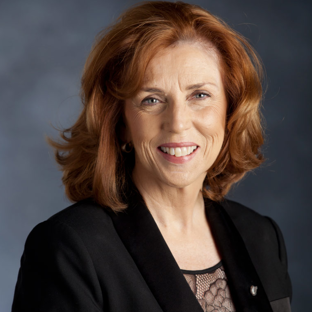What do we expect from a 21st-century university? Which ideals have survived the transition to our brave new education world? And what does it mean when students become customers? Moral philosopher Raimond Gaita, politics professor Robert Manne and University of Melbourne Vice-Chancellor Glyn Davis come together in the ultimate brains trust, to debate the meaning (and future) of new-millennium universities. Chaired by Margaret Gardner.
Featuring

Robert Manne
Robert Manne’s many books include Making Trouble and The Words That Made Australia (as co-editor). He is the author of three Quarterly Essays, In Denial, Sending Them Home and Bad News. He is a Vice-Chancellor's Fellow at La Trobe University.

Raimond Gaita
Raimond Gaita has published widely to academic and non- academic audiences. In 2009, the University of Antwerp awarded Gaita the degree of Doctor Honoris Causa ‘for his exceptional contribution to contemporary moral philosophy and for his singular contribution to the role of the intellectual in today’s academic world’.
His books, which have been widely translated, include: Good and Evil: An Absolute Conception, the award-winning Romulus, My Father, which was nominated by the New Statesman as one of the best books of 1999 and was made into a prize winning film starring Eric Bana, Frank Potente and Kodi Smit-McPhee; A Common Humanity: Thinking About Love and Truth and Justice, which was nominated by the Economist as one of best books of 2000; The Philosopher’s Dog, shortlisted for the New South Wales Premier’s Award and the Age Book of the Year, Breach of Trust: Truth, Morality and Politics and, as editor and contributor, Gaza: Morality, Law and Politics; Muslims and Multiculturalism. His latest book is After Romulus.
Gaita is Professorial Fellow in the Melbourne Law School and the Faculty of Arts at the University of Melbourne and Emeritus Professor of Moral Philosophy at King’s College London.
Glyn Davis
Glyn Davis is professor of political science, vice chancellor and principal of the University of Melbourne.
Professor Davis was educated in political science at the University of New South Wales and the Australian National University, before undertaking post-doctoral appointments as a Harkness Fellow at the University of California (Berkeley), the Brookings Institution in Washington DC and the John F. Kennedy School of Government at Harvard University.
Professor Davis is chair of Universities Australia, and a board member of the Melbourne Theatre Company.
Internationally, Professor Davis is Chair of Universitas 21 (a grouping of twenty-four leading universities from around the globe), a member of the Association of Pacific Rim Universities, and a director of the Menzies Centre for Australian Studies at King’s College London.

Margaret Gardner
Professor Margaret Gardner was appointed as Vice-Chancellor of RMIT University in April 2005, having previously held the position of Deputy Vice-Chancellor (Academic) at the University of Queensland. She has extensive academic experience, having held various leadership positions in Australian universities throughout her career.
Margaret has provided strategic advice on educational pathways, human resource management, equity and employment and industrial relations to governments, industry and a broad range of institutions. She has also served on the boards of a number of bodies, including in the arts and education sectors.
She is currently a member of the Council of Australia Latin American Relations Board and Chair of their Education Advisory Group, a member of the LH Martin Institute Advisory Board, the ANZAC Centenary Advisory Board, and International Education Advisory Council.
Margaret chairs the Museums Board of Victoria, RMIT International University Vietnam Pty Ltd RMIT Vietnam Holdings Pty Ltd as well as the Strategic Advisory Board, Office for Learning and Teaching and is a director of Open Universities Australia and the Fulbright Commission Advisory Board.
In 2007, Margaret was made an Officer of the Order of Australia in recognition of service to tertiary education, particularly in the areas of university governance and gender equity, and to industrial relations in Queensland.
